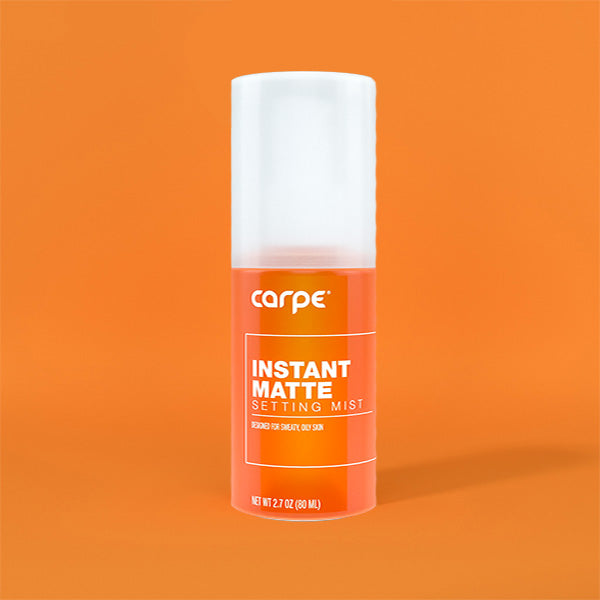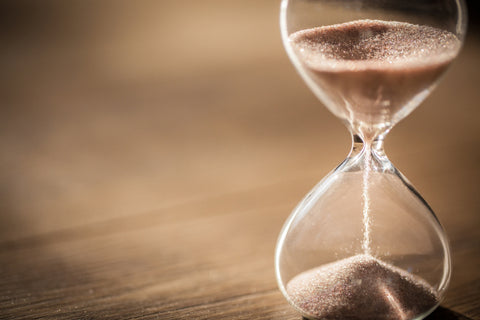Menopause is a universal experience for all women who have a menstrual cycle. As if years of dealing with a period weren’t stressful enough, menopause brings its own batch of bodily changes and experiences. Menopause and sweat have an unfortunate link. Some of the most notorious symptoms that menopause causes are hot flashes, night sweats, and excessive sweating. These symptoms can be difficult to deal with for some and downright debilitating for others. If you or someone you love is struggling to deal with these specific symptoms then read on to learn these crucial facts about menopause and sweating.
#1: About 75% of women going through menopause will experience hot flashes and night sweats.
Sweating is one of the first and most common indications of impending menopause. As many as 75% of women who are in perimenopause or menopause will experience hot flashes and night sweats to varying degrees. This means these symptoms affect more women more often than not, making them very common. What’s more concerning is that for 25% to 30% of the women who experience hot flashes and night sweats the symptoms will be so severe that they interfere with their quality of life. Luckily, for those with severe symptoms due to menopause and sweating there are effective treatments that can help.[1]
#2: Doctors think that hot flashes and excessive sweating associated with menopause is caused by decreasing levels of estrogen, but there are a few other theories as well.
Once menstrual cycles stop women experience a dramatic drop in the level of estrogen in their body. This drop in estrogen is thought to affect the part of the brain that regulates body temperature in such a way that even small changes in external temperature can cause a core rise in body heat. Sweating is the body’s natural way of keeping itself cool so the body begins the process of sending blood to the skin and sweating when its core temperature increases. Hot flashes are essentially your body’s way of trying to cool itself down and keeping your internal temperature stable.[1]
No one is really sure what causes the relationship between menopause and sweating. So naturally, there are a few other theories about what causes menopausal women to experience hot flashes. One theory suggests that women have super sensitive skin during this time in life which makes them more prone to vasodilation (blood vessels opening up) and hot flashes. Another theory holds that a brain chemical imbalance is at play. The level of a hormone called leptin (a hormone that influences appetite) can be affected during menopause in addition to blood sugar levels. Some think that these hormonal shifts may lead to hot flashes.[1]
#3: Menopause begins once you haven’t had a period for 12 months in a row - but hot flashes and night sweats can begin much sooner.
Menopause occurs in three stages: perimenopause, menopause, and postmenopause. Perimenopause is the first stage. During this stage, the body begins to produce less estrogen (a sex hormone) which is when menopause and sweating symptoms like hot flashes and night sweats begin. This process typically starts some time during a woman’s 40’s, but it can begin as early as a woman’s late 30’s. Menopause comes next. This stage starts when a woman hasn’t had a period for 12 months in a row. Generally this is when hot flashes and night sweats actually tend to subside, although the time frame is different for each woman. Postmenopause is the third stage and most women will no longer have significant symptoms once they reach it.[2]
#4: Hot flashes and excessive sweating related to menopause can last for a long time. The average time women experience perimenopause symptoms is 4 years!
Hot flashes and night sweats seem to peak during perimenopause (the first stage of menopause). It is thought that perimenopause lasts for around four years in the average woman. One research study found that women with moderate to severe hot flashes struggled with them for a median of 10.2 years! This is a longer timeframe than is generally thought to occur (thankfully). If you are dealing with hot flashes it could be a while before your body adjusts to its new normal and they taper off.[2]
#5: The excessive sweating associated with menopause is actually considered to be a form of secondary hyperhidrosis and it can be treated.
Hot flashes, night sweats, and excessive sweating are considered to be normal physiological changes that occur during menopause. However, it may be interesting to note that the excessive sweating caused by menopause is considered to be a type of secondary generalized hyperhidrosis. Secondary hyperhidrosis is just a medical term for excessive sweating that is caused by an underlying physiological condition, disease, or medication side effect.[3] It may be beneficial to look into some of the ways that people deal with hyperhidrosis when learning how to cope with persistent menopause and sweating symptoms. Companies like Carpe, make antiperspirant lotions that can reduce sweating production and make you more comfortable.
#6: Menopause Hormone Therapy (MHT) and other medications can be used to treat hot flashes, night sweats, and excessive sweating.
Menopause hormone therapy consists of replacing a woman’s lowered levels of the sex hormone estrogen with artificial estrogen. This type of treatment is the most effective way to reduce symptoms of hot flashes and night sweats. Unfortunately, it is associated with a higher risk of developing heart disease, blood clots, stroke, and breast cancer. The longer a person uses hormone therapy the higher their risk of developing a health problem. There are also other medications that can be used to treat symptoms such as gabapentin, clonidine, and SSRI’s. Each medication has its own potential benefits and drawbacks, so speak with your doctor if you are struggling with symptoms and considering treatment.[1][2]
#7: Hot flashes were thought to be associated with negative mood symptoms during menopause, but that has changed.
Several years ago researchers thought that the development of hot flashes were associated with depression that can accompany menopause. It has recently been found that depression typically occurs before the development of hot flashes if it is going to occur as a result of menopause. So, just because you have hot flashes does not mean you will also get depression. Some women struggle with depression as a side effect of fluctuating hormones during menopause which can also make other physiological symptoms more difficult to deal with.[4]
#8: There are non medical ways to manage menopausal sweating.
There are several ways to manage hot flashes and night sweats that don’t involve medications. While there is no conclusive scientific evidence, some people believe that supplements like black cohosh, DHEA, dong quai, ginseng, kava, red clover, and soy are beneficial in relieving symptoms.[1] You can also use practical strategies to manage your sweat like avoiding caffeine and alcohol, staying in cool environments when possible, dressing in layers, keeping your bedroom cool, and using over-the-counter topical products like antiperspirant. Even though these changes might seem small they can make menopause and sweating more manageable.[2]
Sources
- Suszynski, M. (n.d.). Menopause and Sweating. Retrieved from https://www.webmd.com/menopause/features/menopause-sweating-11#1
- Scaccia, A. (2018, May 16). How Long Do Symptoms of Menopause Last? Retrieved from https://www.healthline.com/health/menopause/how-long-does-menopause-last
- Pariser, D. M. (2014). Hyperhidrosis (4th ed., Vol. 32). Amsterdam: Elsevier Pub. Co., 2014. Retrieved from https://www.elsevier.com/books/hyperhidrosis-an-issue-of-dermatologic-clinics/pariser/978-0-323-32607-0
- Santoro, N., pperson, C. N., & Mathews, S. B. (2016). Menopausal Symptoms and Their Management. Endocrinol Metab Clin North Am., 44(3), 497–515. Retrieved from https://www.ncbi.nlm.nih.gov/pmc/articles/PMC4890704/






16790753702383.jpg?v=1679075372)

16790746985853.jpg?v=1679074700)


16790757289763.jpg?v=1679075731)












